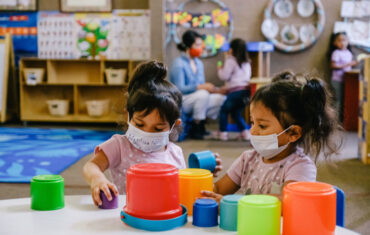Face masks can also offer the wearer some protection though how much varies greatly, depending on the type of mask. No mask will offer full protection. And they can not replacement for physical distancing, frequent hand-washing and avoiding crowds. When you combine face masks with those measures, they can make a big difference.
When choosing face masks, experts say focus on the fabric, fit and breathability. How well a mask protects is a function of both what it’s made of and how well it seals to your face. But if you can’t breathe well through it, then you’re less likely to keep it on.
Fabric Masks
First, consider the fabric itself. To check your fabric, hold it up to a light: If you can easily see the outline of the individual fibers, it’s not going to make a great filter.
Think multiple layers.
Several studies have found that face masks made of multiple layers are more effective at blocking small particles. Polypropylene is great as a physical filter but has another benefit: It holds an electrostatic charge. In other words, it uses the power of static electricity. And unlike other materials, polypropylene keeps its electrostatic charge in the humidity created when you breathe out, says Yi Cui, a professor of materials science and engineering at Stanford University who co-authored the Nano Letters study with Chu.
Shape also matters:
Face mask‘s ability to filter out particles depends on not just what it’s made out of but how well it seals to your face. When it comes to cloth masks, those that cup tightly to your face are best
Avoid face masks with exhalation valves. Some cloth and disposable masks come with an exhalation valve at the front. The valve makes it easier to breathe out, but it also releases unfiltered air, so it doesn’t protect others if you’re contagious. And protecting others is the primary reason to wear a mask.
Keep it clean.
Experts say cloth masks should be washed daily with soap or detergent and hot water. Make sure the mask is completely dry before you reuse it, as a wet face mask can make it harder to breathe and can promote the growth of microorganisms.
Regardless of whether you choose a cloth or surgical mask, be aware that this doesn’t mean you can suddenly be in prolonged close contact with others. A growing body of evidence supports the idea that wearing face masks in public, even when you feel well, can help curb the spread of the coronavirus — since people can spread the virus even without showing symptoms. That’s the main reason to wear face mask: to protect other people from you.






